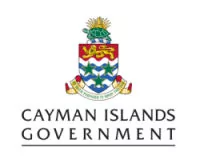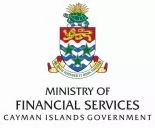The Cayman Islands Government has already contacted EU officials to begin the process of being removed from the EU list of non-cooperative jurisdictions as soon as possible, which is understood to be October this year, said the Cayman Islands Premier, the Hon. Alden McLaughlin.
Acknowledging that the EU's decision today (Tuesday, 18 February) is deeply disappointing, Premier McLaughlin noted that over the past two years, Cayman's Government has cooperated with the EU to deliver on our commitments to enhance tax good governance.
He noted that since 2018, Cayman has adopted more than 15 legislative changes in line with the EU's criteria.
In April 2019 the EU confirmed that Cayman had satisfied its economic substance requirements, with the exception of economic substance for funds, also known as collective investment vehicles (CIVs). This is a specific EU requirement, as Cayman's economic substance legislation was evaluated in June 2019 as "not harmful" – the highest rating possible – by the OECD's Forum on Harmful Tax Practices.
On 31 January 2020, Cayman passed The Private Funds Law and The Mutual Funds (Amendment) Law, both of which address the EU's concerns for CIVs. The laws were enacted on 7 February 2020.
Premier McLaughlin said the EU was duly notified that Cayman would pass the CIVs-related legislation by 31 January 2020. However, it appears that the listing stems from Cayman's legislation not being enacted by 4 February, which was the date of the EU's Code of Conduct Group (CoCG) meeting to advise the EU Finance Ministers, prior to the Finance Ministers' decision regarding the listing today.
"While Cayman consulted with a number of stakeholders on our legislation, including our financial services industry, the principal components of our new and revised laws were shaped by the EU's criteria," Premier McLaughlin said.
This includes Cayman's commitment to a six-month transition period for registering funds that are now required to do so, in accordance with the new Private Funds and amended Mutual Funds laws.
Since the EU began its listing process in December 2017, almost 30 countries have been listed as non-cooperative. The majority have been subsequently removed, once required actions have been taken.
Premier McLaughlin said the Cayman Islands Government acknowledged the EU's statement today, which said dialogue will continue with listed jurisdictions. He said the Cayman Islands also remains fully committed to cooperating with the EU, and will continue to constructively engage with them with the view to be delisted as soon as possible.
The content of this article is intended to provide a general guide to the subject matter. Specialist advice should be sought about your specific circumstances.

